- Home
- Steven Pressfield
Last of the Amazons Last of the Amazons Last of the Amazons Page 7
Last of the Amazons Last of the Amazons Last of the Amazons Read online
Page 7
She claimed spear and shield and mounted. At the palisade she fought in the van and by her charge broke the foe. At last on the strand, the posse dashed to safety (save three who fled in a longboat) behind a stockade erected by the men guarding the ships. The swamp people withdrew; our company made haste to embark. Again Father ordered Europa and me to make ready to be escorted home.
Again Europa defied him.
“My child, you are but fourteen! Six months hence you shall be a bride.”
“Never!”
The posse ringed her, in awe at her temerity, foremost among them Prince Atticus, the betrothed-to-be she now rejected.
“You abhor my bold speech, Father, lest hearing it my prospective husband no more want me. But you think not to ask, Do I want a husband? I repeat: Never. No man shall rule me.”
“I shall rule you.”
With these words Father advanced upon her, hand raised to deal her a blow.
Atticus intercepted his rush. At once Europa stepped round the prince, soles planted, ready to pitch tooth and claw upon her sire if he willed.
Father gave back in astonishment.
“By the gods,” he declared, motioning to include me, “what a pair of hellcats have I spawned!”
Atticus cut this off. There would be no return to Athens for all or any. Too much blood had been shed, of too many good men. The three who had deserted would bear our news home, informing our kin of events thus far, or their own self-serving version, which would suffice. “As for me,” Atticus declared, “I will not return to my father or mother, or to those of our fallen, bearing failure.”
The prince turned to Europa.
“You followed the Amazon Selene here, didn’t you?’’
“Yes.’’
“You sought to join her?’’
“Yes.’’
“And flee with her to the Wild Lands?’’
“Yes.’’
“But Selene repulsed you, didn’t she? She would not have you. She called you child and commanded you home.’’
Europa’s aspect told this was true.
“You hate the Amazon for this. You hate Selene.”
No answer.
“You know where she went. You would follow. You would demonstrate by your acts that child you are no longer.”
Atticus stepped directly before Europa.
“Therefore I put this to you, maiden. Cast your lot with us. Guide us. Instruct us.”
Father protested with vehemence. “You would use a girl, Atticus, a child . . .”
“I see no child but woman, Elias. And I make no shame to voice that which stands in the hearts of all. We have faced this warrioress Selene, and that woman-spirit which animates her has struck us through with terror. This same spirit we behold in this maiden, your daughter Europa. I for one want this spirit. I want it with us, on our side. Will you come, woman?”
The prince summoned his master at arms.
“Arm her,” he commanded. “Draw her a berth in the fore of our company and a shipboard stall for her horse. Let no one condescend to her henceforth by word or action, but address her with such respect as he tenders me.”
Atticus stripped his own shortsword, tugging it over his head by its sheath and baldric, and, crossing to my sister, set it in her hands.
The men cheered.
Father looked on, appalled but powerless to intervene.
Yet Europa, far from being caught up in the sweep of affect, regarded Atticus with cool remove.
“You seek, my lord, to use me for your own designs.”
“Indeed I do.” The prince made no effort to dissimulate his object. “But by such use you may, as well, use me for yours.”
BOOK THREE
AMAZON
LOVE
8
A GATHERING OF
THE CLANS
Selene’s testament:
Horse, when she taught the peoples of the plains to live, established for each its own usage. One race was instructed to constitute itself as stallions and harem, another as all colts, still others one way at one season and another at another. Tal Kyrte, the free people, she commanded to dwell apart from men, mares unruled by stallions, and to breed only at one season. Horse licensed carnality within two moons of the year only, but enjoined her daughters to hold their persons apart as children of the sky and of freedom, franchising no rival to acquire dominion over their hearts.
So it is that each spring when the sun enters the Ram, the tribes and nations gather, the Themiscyra and the Lycasteia, the Chadisia, and the Titaneia, the Saddle Mountain, the Yrte, the Yssone, and the Echal, those of the mountains south of the Amazon Sea and those of the steppe to the north; all the clans across all the leagues from the Hypanis to the Tanais, those who dwell in Armenia and Cappadocia and those who make their homes in the Ceraunian Caucacus and beside Lake Maeotis. All assemble at the Mound City of Lycasteia, where the river Borysthenes empties into the Amazon Sea. And a time of rejoicing it is, anticipated all year. Not alone for the occasion of begetting daughters to procreate the race, though great joy is derived in this, but as well to reunite with sisters and mothers, mates and mentors and children. Even enemies of feuding tribes are embraced. One salutes her sisters, Eto aparchein, “I have seen your numbers [meaning the horses she leads],” and Arche kena tal, “They are many as the stars.”
At this season the steppe abounds in herds and cookfires and the cone pinnacles of the yrtai, the goatskin tents of the plains nations. The male merchants permitted to establish camps at the Mound City, those Lykians, Phrygians, and Greeks whose associations render tribute to tal Kyrte, are required to provide provender for the horses. One treks beside feed troughs a quarter mile long, brimming with barley and rye and emmer wheat. The earth for miles is paved with straw and fragrant with droppings. Fires break out so regularly as the straw ignites in the sun that special rakes must be laid out at intervals, three times normal size. At the cry of alarm, all fall to, children as well as kings, and a grand time is had. Cheers ring each time a blaze is extinguished.
Tribesmen of neighboring nations assemble as well in the season of Saurasos, “the Gathering,” but may neither bear arms, take food (save in prescribed precincts of the camp) or compete in the games. They may trade however; in fact at that season fortunes are made in horses, furs and hides, gold and copper and iron. Yet lust is a powerful draw. Many come for this alone. So potent indeed is the attraction of sex that many traders (to keep their men’s minds on business) dispatch as their emissaries men of seventy and older, assisted by lads under ten, yet even these are dragged forth by the women at the height of the rites and compelled to copulate. Much mirth is derived from this usage. They have a song, the maidens who may not yet participate (“smoke” being their obscene word for the female portion):
God preserve me from these geezers
With their clawing spindly nards
Rather pluck my smoke with tweezers
Than to mount these never-hards.
One of tal Kyrte may not be permitted intercourse with a man until she has either slain three enemies in battle or experienced a mighty vision for the people. A warrior discovering herself with child stints no measure to make light of this. It is a matter of pride to yield to no infirmity throughout the course of one’s term and, having birthed, to return without break to the practices of freedom—hunting and war. Among the free people the time of birthing is called aidos, “shame,” after that Daughter of Night, sister of Hecate and Nemesis, but the connotation is less of stigma than of silence. A warrior approaching delivery crops the manes and tails of her string and strips them of battle finery. The beasts take on such a chastened aspect that their fellows sense it and shun them, even dogs and birds. One of tal Kyrte gives birth alone, at night, beneath the sky, assisted by that herb called mugwort or artemisia, the virgin’s plant, and attended by Artemis Midwife and Hecate of the Crossroads. The cord of life the new mother severs at both ends, wrapping it about the infant’s waist if a gir
l and throwing it away if a boy. The afterbirth of a female she feeds to that pregnant mare, called inakane, whose foal will belong to her daughter when she grows. A warrior chancing upon a mate delivering will shy apart, not to embarrass her by observation. Pride ordains that the new mother reappear as nonchalantly as possible. One does not employ “infant” or “child” but says, “I have found a bundle,” which she hands over without ceremony to her own mother. She may not touch or speak to the child again until she, the daughter, has passed her horse trials at age seven.
A mother of our race may not raise her daughters (sons are either sold or given to other nations), just as she may own nothing, not even the horses and scalps she captures in war, but all are given into the keeping of her own mother, and great pride is taken by this matriarch, not in the possession of much but in the capacity to donate much to the people. One calls her mother by that name, but its import is closer to sister, and of far less station than grandmother, or “mother-mother,” as it is said. The concept of immediate family is unknown among tal Kyrte, to whom devotion to the nation is all. A stern and scrupulous protocol governs all intercourse between mother and daughter; pride is taken in disseverance, that a mother train and favor others before her own blood, and a daughter obey and seek approval of all before her own dam. By this practice, the free people believe, the natural love of one for the other is not hoarded “within the tent” but turned outward to all the race. To amuse myself I once counted the names tal Kyrte employs to reckon relation. The tally exceeded two hundred. Our tongue has twenty names for sister, forty for aunt and great-aunt, with escalating multiples for cousins and cousins of cousins, cousins of nieces, nieces of cousins, daughters of cousins’ nieces and mothers of nieces’ cousins and nieces’ cousins’ sisters.
By such usage the individual is not only known to all and all known to her, but related to all by blood. As a child if I committed a transgression, say, passing between an elder and the fire, or speaking carelessly of one ill or impaired, I would be taken aside at once by an aunt or sister-cousin-aunt and upbraided, firmly but with love; and growing to majority I in turn schooled those daughters-nieces-cousins whom I called my blood and who called me theirs. So that no Amazon (to employ the Greek term) owns even the conception of feeling alone or apart. All are blood, and all family.
This is a mirror of the society of horses, among whom, even in their thousands, each is known to, and known by, all others. It goes without saying that our horses are known to us, each as an individual, as we to them. Foreigners are astonished to behold a child of six enter a corralled herd in the dark and without even a whisper locate her horse from among hundreds. This is no magic, but the horse-friend recognizes its child-friend’s footsteps and halts for her. You will never see a branded or ear-notched horse in the province of the free people. This to us is savagery.
When Theseus came to the Mound City and spoke before the assembled people in praise of Athens and the way of civilization, he pronounced as its cardinal virtue that happiness which the individual realizes within the open marketplace of ideas and experiences. That is, that the citizen of the city may be or become whatever he wishes. Antiope in rebuttal laughed at this and, putting aside the fact that no woman of Athens, save her whores, is free to step even into the street without the leave of her male master, declared such a state not happiness but madness.
“Who is more happy, the storm or the ocean? Such distinction is fatuous, for storm is ocean and ocean storm. I have walked the streets of cities,” Antiope declared, “and looking into each stranger’s eye felt such despair as may not be recounted. It came to me, moreover, that not only were these city people strangers to me (who was, after all, a stranger) but to each other as well! They knew each other no more than I, a stranger, knew them. How may one know herself, knowing no one? How be sister, apart from sister? Once within the city walls of Iodessa, I came upon a man dead in the street. His fellows stepped over the corpse, without breaking conversation, and continued about their business. You call us savages, Theseus. Yet we have not forgotten what comprises chivalry and gentility, which is that love which binds all to all and makes none a stranger in the name of ‘happiness.’ ”
Among tal Kyrte, girls are raised by no program or elder but by themselves and by Ehal, Nature. She is our book, in whose pages we study as Greek children with tutors and texts. Horse raised me. She taught me silence and solitude. From her I learned how to wake and how to sleep, how to run and how to rest, how to be born and how to die. Horse taught me to roll with joy in the sand, to endure heat and cold and hunger. Horse taught me to dream. All that I know, I learned from her and from sky and storm and steppe. Infants of our race ride on the hips of their sisters and cousins, and because these are always on horseback, it may be said with truth of our babes that they can ride before they can walk. I never knew a moment when I was not part of a horse. To be severed from her, as I was in Sinope as a child, was to be walled off from air and from sun.
Grandmother is the primal and most sacred authority among the daughters of tal Kyrte. Mother-mother, as they call her, owns responsibility for the child. If the child dies or is killed in battle, to mother-mother is delivered her corpse. She must dress and clean it; provide habit and ornament, sustenance, and horses for sacrifice at its burial, and the bronze mirror with which the spirit knows itself in the life after. Mother-mother raises the funeral mound, though in practice of course this is done by the tribe entire, in the rite of epotame, “leave-taking,” in which trikona mates, lovers, and friends donate to the Underworld those arms and artifacts they love most and that will serve best their departed comrade.
In the rearing of a child, mother-mother provides food, clothing, and shelter, weapons, bridle, and riding stock; to her is awarded the prize in all horse trials and all her daughter-daughter’s bounty of battle. Mother-mother inducts her charge into the War Society of her own clan, which marks the child’s accession to womanhood and constitutes the deepest blood tie of the free people. Beyond this bond, however, and noblest of all unions, tal Kyrte believes, is that of friend.
Once I died in your arms, Mione.
Find me now, lest I wander
across this lifetime
alone and without you.
At age seven, after passing her horse trials, a maid chooses and is chosen by two friends. With them she forms her first trikona, the triple bond of life and death. In addition each girl partakes of two other trikonai: a second, of which she is a novice apprenticed with another novice to an elder; and a third, in which she is the elder, schooling two novices. Together these constitute the famed “triple-triple” of Amazonia.
Thus Eleuthera, for example, was “seated” (the same word as used in riding) in one trikona with me and the lass Aella, in which Eleuthera was our elder and we her novices; and in another in which she and her sister Skyleia were novices and Alcippe, Powerful Mare, was their tutor; and in a third with her peers ring champion Stratonike and war queen Antiope.
The latter was Eleuthera’s first, or High Trikona. This means that under the laws of the free people, any of the three, perishing while holding civil or war command, is replaced by the senior of the surviving two, and no other.
No one not of tal Kyrte, male or female, may penetrate the triple bond. Many have tried. Princes come in the season of heat, seeking to bewitch a daughter and bear her away, prize of their vanity. Her mates slay him, or her. For the forswearing of this bond constitutes the supreme sacrilege among the tribes of the free people.
When Theseus captured Antiope’s heart, as the poets claim (or detached her from her reason, in Eleuthera’s edition), he broke the central High Trikona of the nation. And when he bore her off to Athens, this act plunged the dagger of perfidy into the hearts of the free people.
There is a rite among tal Kyrte, convoked so rarely that a generation may pass without witnessing its enactment. This is called tal Mira, the Disburdening. The ceremony is conducted before the convened battalions or “families”
of the Corps of Mounted Archers, when the bonds of the trikona have been broken by one of its members.
The two who have been wronged bare their chevrons, the matrikonai carved on their left breasts. The self-incised flesh is reopened and a brew of lye and camphor oil poured into the wound. Acid smoke rises while each bereaved thrice pronounces the disseverment of those bonds which had married her to her mate. That bow and bridle which the offender had dedicated to Ares Manslayer and Artemis Void of Mercy at her matriculation are now sundered and cast into a trench six feet wide, six feet deep and three hundred feet long, which has been excavated for this office and is called etesta, the grave of friendship. Down this channel the battalions pass, mounted, brows stone-dashed and bleeding. Three stallions are sacrificed to Ares and their bones interred in the crypt. Each warrior dumps into the ditch every article given to her by the traitor. A mound is heaped up. This is performed upon some site of the steppe which for a year after may not be revisited. All children born that day are put to death, so unwholesome is the date accounted. At ceremony’s end the battalions, with the bereaved at column’s head, turn their backs and depart the barrow at a funerary walk.
Such was the rite enacted in the aftercourse of Antiope’s defection. It was conducted exactly as I have detailed, with this exemption: a solitary adit was left unsealed to the crypt, at Eleuthera’s command, in the hope that Antiope’s purpose could yet be resuscitated and her heart, poached by this pirate Theseus of Athens, won back to the free people to whom she belonged.
In my lifetime, only two warriors of tal Kyrte have incurred the infamy of desecration of the triple bond. These are Antiope and I. My treason was double and consisted in this: first, the abetting of our queen in her most calamitous defection from the free people (when she took arms against them at the climax of the Great Battle of Athens) and, second, in that battle’s aftermath: my failure to take my own life and that of my beloved Eleuthera, who was gravely wounded and in my charge. I knew it was my duty. I had the blade in my hand. But I could not do it. My stroke was stayed not out of my love for her alone (for what could be sweeter than to depart with her to the life after?) but accounting her indispensability to the free people. Without her, who would lead tal Kyrte? All others had been slain or broken. Without Eleuthera, what would become of our nation?

 The Legend of Bagger Vance: A Novel of Golf and the Game of Life
The Legend of Bagger Vance: A Novel of Golf and the Game of Life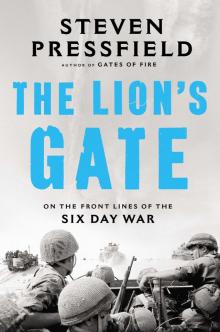 The Lion's Gate: On the Front Lines of the Six Day War
The Lion's Gate: On the Front Lines of the Six Day War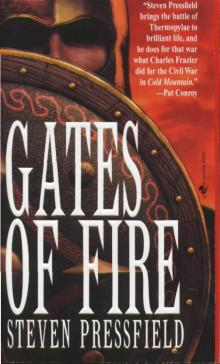 Gates of Fire
Gates of Fire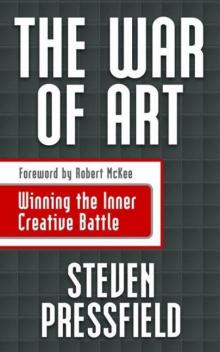 The War of Art
The War of Art 36 Righteous Men
36 Righteous Men The Virtues of War
The Virtues of War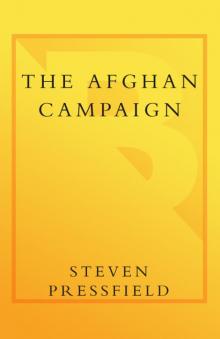 The Afghan Campaign
The Afghan Campaign Killing Rommel
Killing Rommel Last of the Amazons Last of the Amazons Last of the Amazons
Last of the Amazons Last of the Amazons Last of the Amazons The Profession
The Profession Last of the Amazons
Last of the Amazons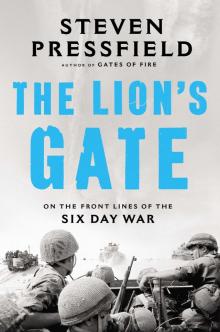 The Lion’s Gate
The Lion’s Gate The Legend of Bagger Vance
The Legend of Bagger Vance Virtues of War
Virtues of War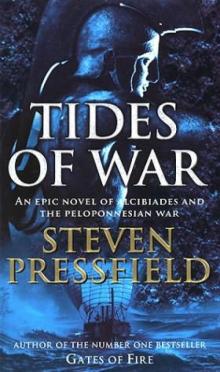 Tides of War, a Novel of Alcibiades and the Peloponnesian War
Tides of War, a Novel of Alcibiades and the Peloponnesian War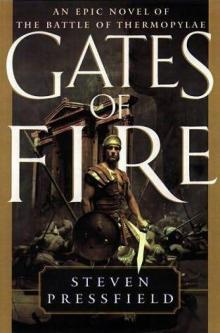 Gates of Fire: An Epic Novel of the Battle of Thermopylae
Gates of Fire: An Epic Novel of the Battle of Thermopylae The Afgan Campaign
The Afgan Campaign